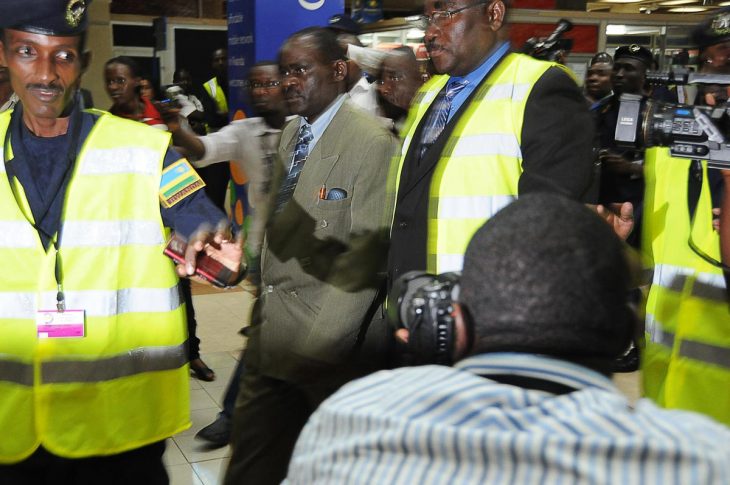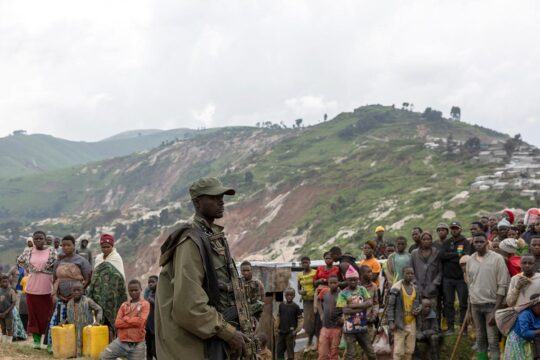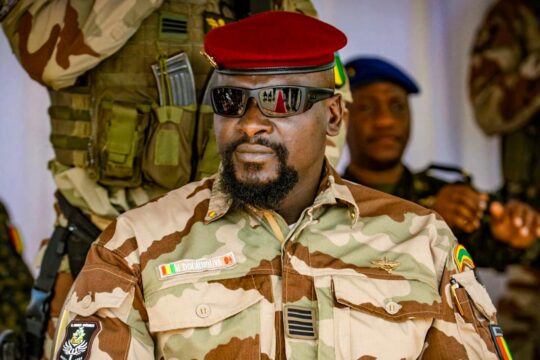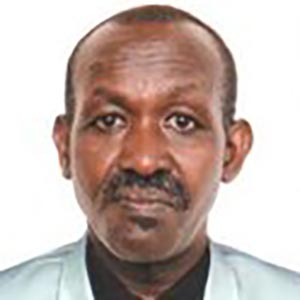For more than 15 years after the genocide, the Rwandan judiciary had very little chance of getting to try suspects outside Rwanda’s borders, due to lack of guarantees on the fairness of trials. But in April 2012, there was a big turning point when the UN’s International Criminal Tribunal for Rwanda (ICTR) in Tanzania handed over one of its accused to Kigali. This change came because of pressure on the ICTR to complete its work quickly. It was also the result of judicial reforms in Rwanda, including abolition of the death penalty and the establishment within the High Court of a specialized chamber for international crimes, responsible in particular for dealing with genocide cases transferred by third countries.
In all these cases, Rwanda promised to ensure respect for the rights of the defence and to guarantee a fair trial. In the case of accused persons referred by the ICTR, their transfer may be cancelled if the ICTR, subsequently replaced by the Mechanism for International Criminal Tribunals (MICT), considers that the rights of the defence have not been respected. However, such a decision is extremely unlikely.
Cases transferred by the ICTR
Before officially closing at the end of 2015, the ICTR transferred two accused, Pentecostal pastor Jean Uwinkindi and militia leader Bernard Munyagishari, to Rwanda. It also transferred the files of six other suspects still on the run. One of them, Ladislas Ntaganzwa, was arrested in December 2015 in the Democratic Republic of Congo and transferred three months later to Rwanda.
Jean Uwinkindi is accused, according to his ICTR indictment, of crimes against Tutsi churchgoers in the parish of Nyamata, 30 km southeast of Kigali. His trial was marked by several postponements due in particular to the issue of ill-defined legal aid. Paid first by hours of service and then on the basis of a monthly contract, his lawyers Gatera Gashabana and Jean-Baptiste Niyibizi rejected a new lump sum contract of 15 million Rwandan francs (about 15,000 euros) for the whole case, which the Ministry of Justice wished to apply to all such cases "for the sake of harmonisation". The lawyers were revoked and replaced by other defence lawyers, whom the accused rejected but who were nevertheless present right up to the life sentence pronounced on Uwinkindi on December 30, 2015. The High Court found him guilty of “murders equivalent to the crime of genocide and extermination as a crime against humanity”. A date has not yet been set for his appeals case before the Supreme Court.
This landmark trial left a trail of smoke – boycott of hearings, rejection of lawyers, failure of defence witnesses to appear, omission of arguments in court – that would get into all the other trials, including that of his co-prisoner Bernard Munyagishari.
Bernard Munyagishari, transferred by the ICTR on July 24, 2013, seems to have learned well from the pastor. His case has been held up by numerous obstacles. He argued that since he was Congolese he did not understand the Rwandan language, Kinyarwanda. The judge concluded that his professional background and a 1982 court case proved the opposite. In March 2016, Munyagishari started to boycott the court hearings in protest at legal aid which he also claimed was a violation of his rights. He rejected the defence team that replaced his lawyers, but the new team remained until the handing down of the verdict. On April 20, 2017, the court handed down a life sentence on Munyagishari, who was still not present. His appeals case is still pending before the Supreme Court.
The Mugesera case
Encouraged by ICTR transfers, several Western countries decided to extradite Rwandan nationals suspected of genocide. However, some like France and Belgium have never agreed to such requests from the Rwandan authorities.
Canada, which closely followed the ICTR's landmark transfer decision, did not wait for the UN tribunal to implement that before authorizing its own transfers. On January 22, Canada extradited well-known suspect Léon Mugesera, and then in 2016 former military officer Henry Jean Claude Seyoboka. Other countries have also followed suit, with one extradition by Norway, two by Denmark and three by the Netherlands. But the United States has the largest number, with four extraditions since 2005. Uganda, where several hundred suspects are said to be hiding, is probably the only African country to have joined the hunt for fugitives, with three extraditions since 2010.

No case has been so much in the news as that of Léon Mugesera. His case saw more than a hundred court adjournments, many of them due to the issue of legal aid. Upon his arrival in Rwanda, it was Mugesera's family who paid the fees of his lawyer, Donat Mutunzi. Then, due to insolvency, the Rwandan lawyer abandoned the case. The accused then asserted his right to legal aid but refused, according to the Ministry of Justice, to comply with the procedure requiring the applicant to complete an ad hoc form. Mugesera argued that an affidavit signed in Canada was enough to prove his indigence. The accused and the ministry were never able to agree. As a result, the trial ended without hearing any defence witnesses or arguments from the defence. On April 15, 2015, Mugesera was sentenced to life in jail for public incitement to commit genocide in a famous speech on November 22, 1992, in Kabaya, northern Rwanda -- the speech that led to his departure for Canada.
Lieutenant Seyoboka was prosecuted for massacres at the Centre for the Study of African Languages in the heart of Kigali. He is the only person amongst those extradited to be tried by a military court. Last January, he was convicted of genocide and sentenced to life in prison.
The Scandinavian cases
Extradited from Norway on March 10, 2013, Charles Bandora was the first genocide suspect to be sent by a European state to Rwanda. He is also the only one who did not obstruct his trial. On May 15, 2015, just two years after his transfer, the High Court found him "guilty of conspiracy, genocide and murder as a crime against humanity", crimes punishable by life imprisonment. The former businessman got a reduction of sentence to 30 years for cooperating in the proceedings. On March 22, 2019, his sentence was upheld on appeal and the crime of conspiracy was re-categorized as genocide "planning" .
It was different with Emmanuel Mbarushimana, a former teacher promoted to school inspector in 1994, who was extradited by Denmark in July 2014. After three years of a trial inspired by the obstructions of his co-prisoners, he was sentenced to life in jail on December 28, 2017 for "genocide, conspiracy to commit genocide and intent to eliminate a social group as a crime against humanity" committed on Kabuye Hill, in the former Butare prefecture (southern Rwanda), where more than 50,000 Tutsis were killed. His appeals case has not yet been scheduled.
Inadequate legal aid
During the trials of the first two cases transferred from the ICTR, several requests were filed with the Registry of the MICT for cancellation of the transfer. The main arguments were inadequate legal aid and the inability to bring refugee witnesses from abroad. In the Uwinkindi case, various MICT observer reports note that "his rights to a fair trial are violated because his defence team has not received the necessary funds" to organize his defence. Insufficient funds were also cited in the Munyagishari case. But the complainants were each time rejected.
In an October 2015 decision in the Uwinkindi case, the MICT said that "the conditions for transfer do not require that there is a given level of funding but that the accused benefit from the principle of equality of arms", which is different from the two parties having the same means. "As an indigent accused, [Uwinkindi] had no right to choose his counsel," the MICT concluded, and "the replacement of the initially appointed counsel does not constitute an obstacle to fair trial”.
On the issue of legal aid, Kigali Bar Association president Benjamin Gasamagera points to the 100 or so experienced lawyers available. "As evidenced by the current trials, this problem no longer exists," says Johnston Busingye, Rwandan Minister of Justice.
Justice near and far
The Rwandan authorities have issued about a thousand arrest warrants for individuals living abroad who are suspected of having participated in the genocide. Compared with that figure, some 20 suspects transferred or extradited in 25 years is very few. Rwanda's Attorney General Jean-Bosco Mutangana nevertheless thinks the number of transfers reflects judicial diplomacy that is bearing fruit. "The ideal for us," he says, "is that these accused be sent back here to be judged at the scene of the crime, so that the victims can see justice being done." But if for any reason "a country cannot extradite an accused, then it must try him without delay", adds Mutangana, hailing the countries that have done this. But who really follows these trials after the ICTR and after gacaca? For Ibuka, the main association of genocide survivors, very few victims follow them. "What is the difference between such a trial and a trial abroad?" asks its executive secretary Naphthal Ahishakiye, who deplores the lack of media coverage. Justice continues to be done, but it is no longer seen to be done.
NTAGANZWA TRIED IN RWANDA
“Ladislas Ntaganzwa is in Kinshasa,” Thambwe Mwamba, Congolese justice minister at the time, announced to the press in December 2015. “He is in a police cell and our services will question him.” The former mayor of Nyakizu, 54, was at the time one of the most wanted genocide suspects in the world. A reward had been offered for his capture. And on that December 9 he was caught in a Congolese army operation against the Democratic Forces for the Liberation of Rwanda (FDLR), a rebel group in eastern Democratic Republic of Congo known to include former leaders of the 1994 genocide in Rwanda.
On March 20, 2016 Ntaganzwa, who was indicted by the ICTR, was handed over to the Rwandan authorities. He is being prosecuted for “genocide, direct and public incitement to commit genocide, extermination as a crime against humanity, murder, rape and sexual abuse”. When he appeared before the judge two weeks later and refused to plead guilty or not-guilty, people wondered if he would follow in the footsteps of Uwinkindi and Munyagishari and try to obstruct his case.

That is not the case. Three years after his transfer, the trial is “going fairly well after a few little obstacles, says Alexis Musonera, one of his lawyers. The problems include a huge case file that he had not had the time to read, in a language – English – that he didn’t understand, a computer he didn’t know how to use, and a threat of recusal for “not spending enough time” preparing the defence, which was finally settled amicably. That was all! Neither of the two lawyers complained about their fees or the legal aid in general.
Presentation of evidence started on February 18, 2019. Some 30 prosecution witnesses are expected to testify, while the defence has not yet presented its witness list. “We are still honing the list in view of the statements,” explains one of the two lawyers who does not deny the “sensitivity” of the defence witnesses in such a notorious case.
LIST OF THE 19 INDIVIDUALS TRANSFERRED OR EXTRADITED TO RWANDA
- Bandora Charles, extradited from Norway in March 2013 (sentenced to 30 years in prison)
- Birindabagabo Jean-Paul, extradited from Uganda in May 2017 (sentenced to life in jail, appeal under way)
- Kagaba Enos, extradited from the United States in May 2005 (sentenced to life in jail by a gacaca court in October 2011)
- Kwitonda Jean-Pierre, extradited from Uganda in November 2010 (sentenced to life in jail by a gacaca court, retrial under way)
- Iyamuremye Jean-Claude, extradited from the Netherlands in November 2016 (trial under way)
- Mbarushimana Emmanuel, extradited from Denmark in July 2014 (sentenced to life in jail, appeal under way)
- Mudahinyuka Jean-Marie Vianney, extradited from the United States in January 2011 (sentenced to life in jail)
- Mugesera Léon, extradited from Canada in January 2012 (sentenced to life in jail, appeal under way)
- Mugimba Jean-Baptiste, extradited from the Netherlands in November 2016 (trial under way)
- Mukeshimana Marie-Claire, extradited from the United States in December 2011 (sentenced to 19 years in jail)
- Munyagishari Bernard, transferred by the ICTR in July 2013 (sentenced to life in jail, appeal under way)
- Munyakazi Léopold, extradited from the United States in September 2016 (sentenced to life, acquitted on appeal, sentenced to nine years in prison for “revisionism”)
- Munyaneza Jean de Dieu, extradited from the Netherlands in March 2015 (sentenced to 15 years in jail by a gacaca court, retrial under way)
- Nkundabazungu Augustin, extradited from Uganda in August 2010 (sentenced to life by a gacaca court)
- Ntaganzwa Ladislas, transferred by the ICTR in March 2016 (trial under way)
- Ntamabyariro Agnès, arrested and mysteriously brought from Zambia in 1997 (sentenced to life, appeal before the Supreme Court)
- Seyoboka Henry Jean Claude, extradited from Canada in November 2016 (sentenced to life, appeal under way)
- Twagiramungu Jean, extradited from Germany on August 18, 2017 (trial under way)
- Uwinkindi Jean, transferred by the ICTR in April 2012 (sentenced to life, appeal under way)







